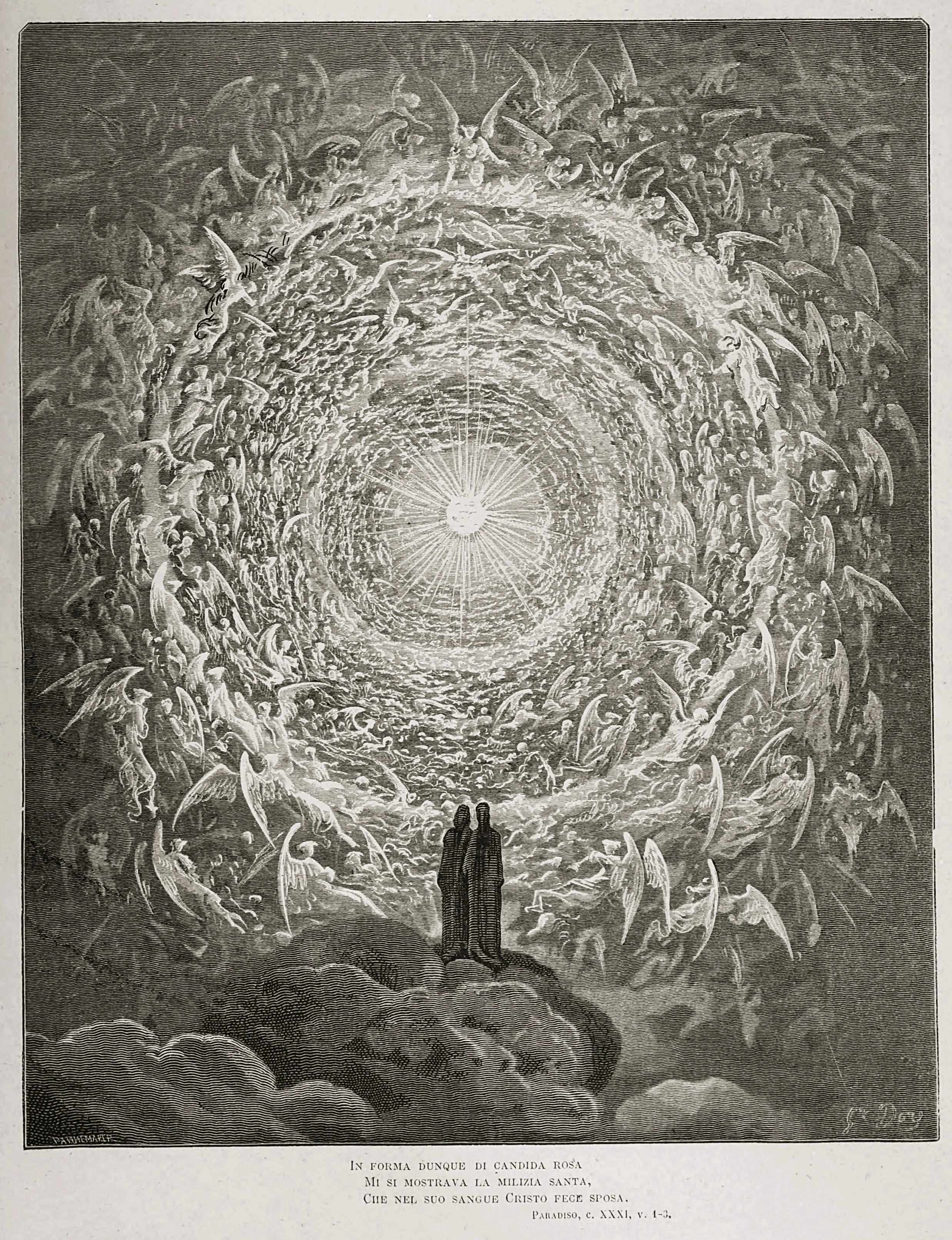This is a repeating event- Event 3 / 819 October 2025 4:00 pm2 November 2025 4:00 pm
Dante - The Divine Comedy: Paradiso
Event Details
Gustave Doré, Public domain, via Wikimedia Commons After Dante Alighieri’s death
Event Details

After Dante Alighieri’s death his family discovered that the final thirteen cantos of his Divine Comedy were missing. They searched for months and began to fear the great epic poem would never be published. But then, according to Boccaccio, Dante appeared to his son Jacopo in a dream. Clad in radiant white, the poet led his son to the house in Ravenna where he had lived in exile and pointed to a place on the wall. When Jacopo awoke, he went straight to the spot his father had shown him and found the missing cantos hidden behind the wall.
These final cantos describe Dante’s magnificent mystical vision of the afterlife awaiting virtuous souls. In the view of the translator and scholar Robert Hollander, “Dante’s Paradiso is surely one of the most daring poetic initiatives we have. . . . Theology set to music, as it were, it pushes its reader (not to mention its translators) to the limit.”
Our LitSalon group has read Inferno and Purgatorio, and we now move to Paradiso, but new readers are also welcome to join the journey. Why not begin with Dante’s heaven before descending into his hell? We hope to offer Inferno again in January 2026.
JOINING DETAILS:
- Eight meeting study of Paradiso, the third and final part of Dante’s Divine Comedy led by Sean Forester on Zoom
- Sundays, 4.00-6.00 pm (UK), 12, 19, 26 October & 2, 9, 16, 23, 30 November 2025
- You can use any translation of Dante that you prefer, although Sean recommends: Paradiso: A Verse Translation by Robert Hollander and Jean Hollander, ISBN-13 : 978-1400031153.
- £240 for eight two-hour meetings, to include background notes and additional resources.
- Use this link to share details of the study.
- The next cycle of The Divine Comedy will begin in January 2026 with Inferno (12 meetings) followed by Purgatorio in Spring 2026 (10 meetings).
Organizer
Time
26 October 2025 4:00 pm - 6:00 pm(GMT+00:00)
Location
VIRTUAL - ON ZOOM
